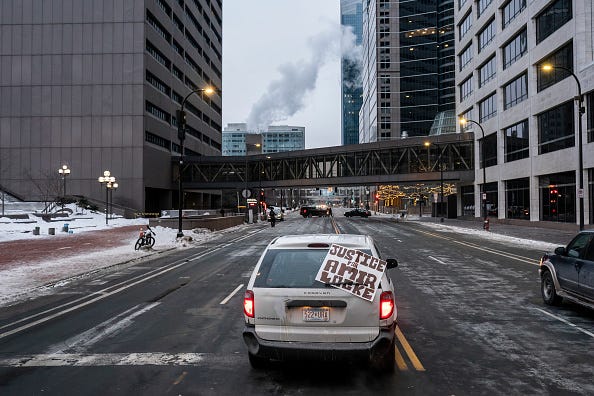
On Wednesday morning, Hennepin County Attorney Michael Freeman and Minnesota Attorney General Keith Ellison announced that they will not file criminal charges in the death of Amir Locke.
“Amir Locke’s life mattered,” a joint press release from the two prosecutors said. “He was a young man with plans to move to Dallas, where he would be closer to his mom and – he hoped – build a career as a hip-hop artist, following in the musical footsteps of his father.”
The release went on to say that Locke was a “victim” and that he may still be alive if the no-knock warrant was not used in the St. Paul criminal investigation.
Ellison and Freeman met with the Locke family on Wednesday to discuss his decision not to pursue legal action against the Minneapolis Police Department for Locke’s death.
After reviewing all possible legal actions, the two attorneys said that there was not enough admissible evidence to file any criminal charges.
The press release said the “state would be unable to disprove beyond a reasonable doubt any of the elements of Minnesota’s use-of-deadly-force statute that authorizes the use of force by Officer Hanneman.”
“Minnesota law authorizes peace officers to use deadly force while in the line of duty,” the press release said. “This law is rooted in United States Supreme Court precedent.”
Ellison and Freeman cited four reasons why the actions of the Minneapolis police did not justify criminal charges, including the fact they were conducting a search warrant related to a homicide in which high-powered rounds had been used; The suspects remained at large; The suspects were known to possess firearms and engage in violent conduct; and an unidentified individual was holding a gun pointed in the direction of at least one officer with others present.
“These circumstances are such that an objectively reasonable officer in Officer Hanneman’s position would have perceived an immediate threat of death or great bodily harm that was reasonably likely to occur, and an objectively reasonable officer would not delay in using deadly force,” the release reads.
The release concluded by saying that it was not the role of Freeman or Ellison to decide whether the officers were right in seeking a no-knock warrant but rather if there was sufficient admissible evidence to support a criminal charge, which they said there was not.
“Under current law – and as awful as the circumstances of this tragedy are – there is not sufficient admissible evidence to support a criminal charge,” the release said.

